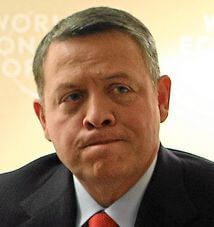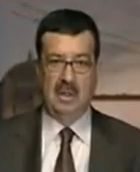 Everything you need to know about today’s media coverage of Israel and the Mideast.
Everything you need to know about today’s media coverage of Israel and the Mideast.
A human rights activist’s commentary sparked an attempt on his life in Gaza. A Syrian sheikh was forced at gunpoint to praise Assad on TV. And the Muslim Brotherhood — is it really going through an identity crisis?
HonestReporting delivers the Media Cheat Sheet to your Facebook feed. Join Media Cheat Sheet – Israel in the News.
Israel and the Palestinians
• Mahmoud abu Rahma, a Palestinian human rights activist who was stabbed by unknown attackers returned home from the hospital. According to the LA Times, Rahma was likely attacked over a blunt commentary he wrote two weeks ago accusing the resistance movement of endangering Palestinian civilians:
Many citizens also fell victim of the continuous negligence of the resistance groups who show little or no care for people’s life and well being, or, worse, fail to take responsibility for shocking acts by their members.
Numerous people were injured from live fire coming from resistance groups training sites; including children and at least one man who lost his eye . . .
Explosions also occur frequently in densely-populated areas around Gaza and have their victims; many of whom are children. Shootings occur by mistake inside homes from weapons owned by the resistance. Military training sites function and are located in places very close to neighborhoods and/or schools, from where acts of resistance; including firing rockets, also occur . . .
This conclusion represents the core of the dilemma: who will protect the people from the wrongful acts of the resistance and the government?

• In a WSJ op-ed (via Google News), Jordan’s King Abdullah rejects the Israeli notion that the Arab Spring makes the region too unsettled for peace talks. I don’t object to his urgency, but I question the way he builds his case.
The Israeli-Palestinian conflict isn’t on Syrian, Libyan or Tunisian radar. And in Egypt, the Camp David accords are one facet of a complicated power struggle. Yet King Abdullah writes:
Make no mistake about it: The Palestinian right to statehood and their cry for justice and a homeland free of occupation remain the Arab people’s foremost cause.
More interesting was the king’s wider-ranging interview with CNN.
• Knesset speaker Ruby Rivlin says he received an apology from the International Parliamentary Union, which had invited Hamas to an upcoming gathering. More at AP.
Iranian Atomic Urgency
• Quote of the Day:
“What we know suggests the development of nuclear weapons.”
IAEA chief Yukiya Amano on Iran, as quoted in Reuters.
• The IDF’s former intelligence chief says Iran now has everything it needs to build a nuclear weapon. AP writes:
It was not clear whether Amos Yadlin, who retired in November 2010, was referring to the mechanical elements of a bomb or implying the Iranians have sufficient weapons-grade uranium, a critical ingredient for bombmaking . . .
“If the Iranians get together tonight and decide to secretly develop a bomb, then they have all the resources and components to do so,” Yadlin told Maariv.
Arab Spring Winter
• Now that it’s in power, Egypt’s Muslim Brotherhood is going through evolution, identity crisis, or both in the way it handles Israel. Will the MB choose ideology or pragmatism? If AP‘s analysts are on to something, the Brotherhood’s for now charting a third course — avoidance.
Analysts believe that for the short term, the Brotherhood would stay away from ministerial portfolios that involve direct contact with Israel, such as the Foreign Ministry, and rely on an elected president to deal with Israel in the Mideast peace process.
The Brotherhood’s top priority is believed to be to solidify its political domination within Egypt. A confrontation with Israel and the United States over the peace deal could endanger that.
• Al Ahram: The US ambassador visits Muslim Brotherhood HQ.

• A Syrian tribal leader, Sheikh Nawaf al-Bashir, was forced at gunpoint to appear on TV praising the Assad regime. Now free in Istanbul, Bashir is disowning the comments. Reuters explains:
Bashir, who heads the main Baqqara tribe in rebellious Deir al-Zor province, disowned his comments supporting the Syrian government made under duress in October after a spell in jail.
“I apologise to the Syrian people for the words I have said. I now declare that we want nothing but to topple the regime,” he told a news conference in Istanbul.
The interview on Syrian television showed Bashir sitting on a chair, with any weapon outside the picture.
More on the story at Asharq al-Awsat.
• Syrian opposition figures interviewed by the Washington Post agree that Western inaction not only raises the odds of an all-out civil war, it boosts the standing of Islamic extremists too:
“This is not going to stop. It’s becoming an armed rebellion, it’s going to be chaos, and I don’t know why the world doesn’t understand that,” said Rami Jarrah, a Syrian activist living in Cairo who was forced to flee Damascus in October after the security forces learned his identity.
Jarrah and other observers say they fear the inaction will not only encourage opponents of the government to fight but also encourage a drift toward extreme ideologies.
“People are getting more angry now as they realize there won’t be any help,” he said. “It’s building up hatred to the West, and it’s becoming extremism. It’s very dangerous now.”
• Iran was caught trying to help Damascus evade sanctions on Syrian oil exports. According to the Wall St. Journal:
American officials investigating the Iranian operation said it is designed to quietly ship Syrian crude oil to Iran, where it can be sold on the international market, with revenue going back to Damascus.
Rest O’ the Roundup
• Speaking in Tel Aviv, Jerusalem Post editor says Bibi views the NY Times and Haaretz as Israel’s biggest enemies:
. . . Netanyahu made the remark to him about the newspapers at a private meeting “a couple of weeks ago” at the prime minister’s office in Tel Aviv.
“He said, ‘You know, Steve, we have two main enemies,’ ” Linde said, according to a recording of the WIZO speech provided to JTA. “And I thought he was going to talk about, you know, Iran, maybe Hamas. He said, ‘It’s The New York Times and Haaretz.’ He said, ‘They set the agenda for an anti-Israel campaign all over the world. Journalists read them every morning and base their news stories . . . on what they read in The New York Times and Haaretz.’ ”
Linde said he and other participants at the meeting asked Netanyahu whether he really thought that the media had that strong a role in shaping world opinion on Israel, and the prime minister replied, “Absolutely.”

UPDATE: The Prime Minister’s office denies the statement. Haaretz writes:
The PMO asked Linde to publish a clarification, which he did, stating that his remarks at the Tel Aviv conference were his own analysis of the conversation with the prime minister.
• Cyber war continues as Israeli hackers took down the web sites of the Arab Bank of Palestine and the UAE’s central bank.
• One year after a number of online papers installed paywalls, Clay Shirky looks at how readers are reacting. The Columbia Journalism Review responds that Shirky’s conclusions show that paywalls aren’t so complicated after all.
(Image of King Abdullah via Flickr/World Economic Forum, Sheikh Bashir via YouTube/OmawiTV)
For more, see Wednesday’s Media Cheat Sheet.

